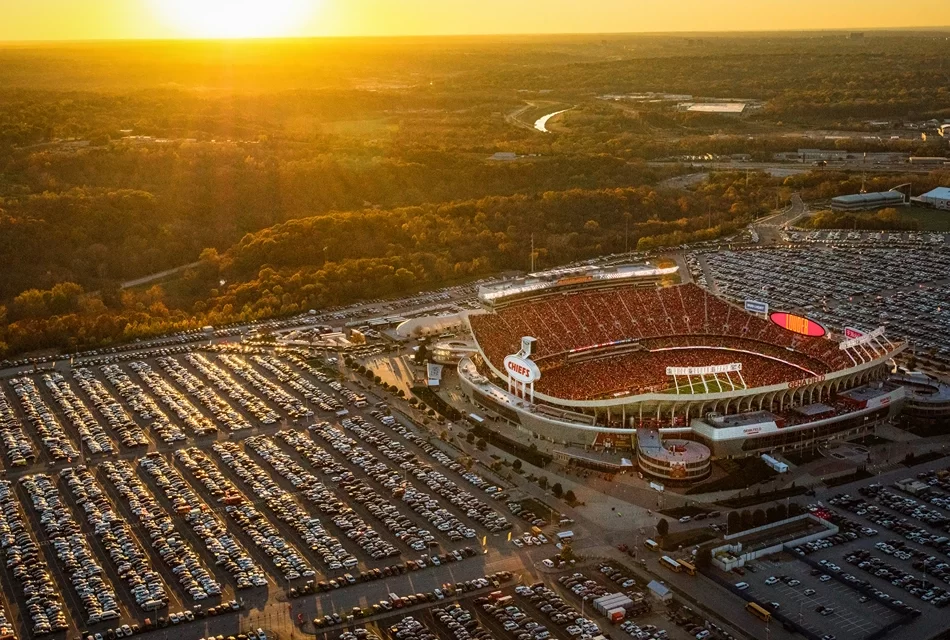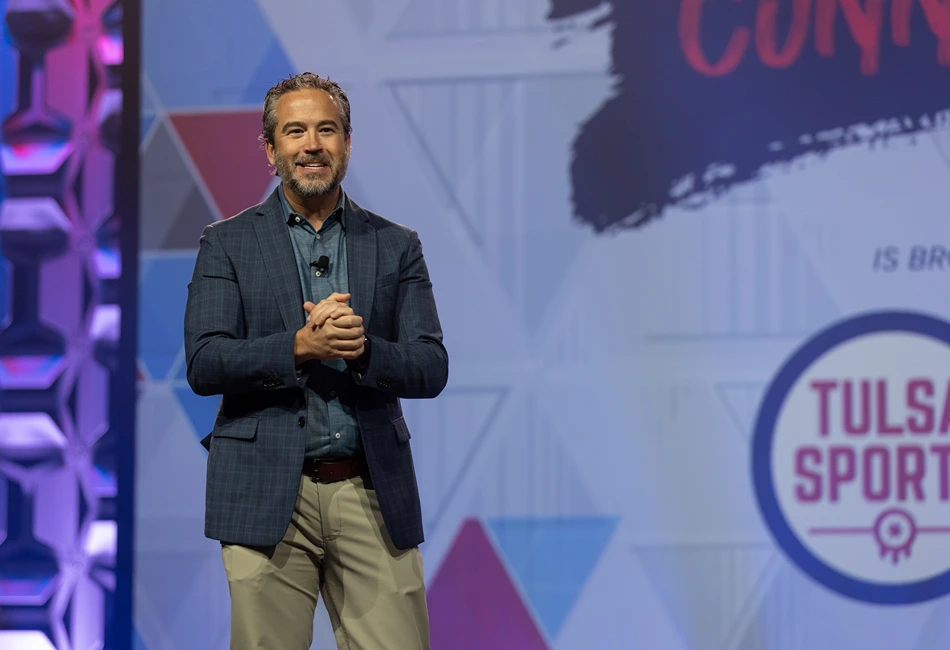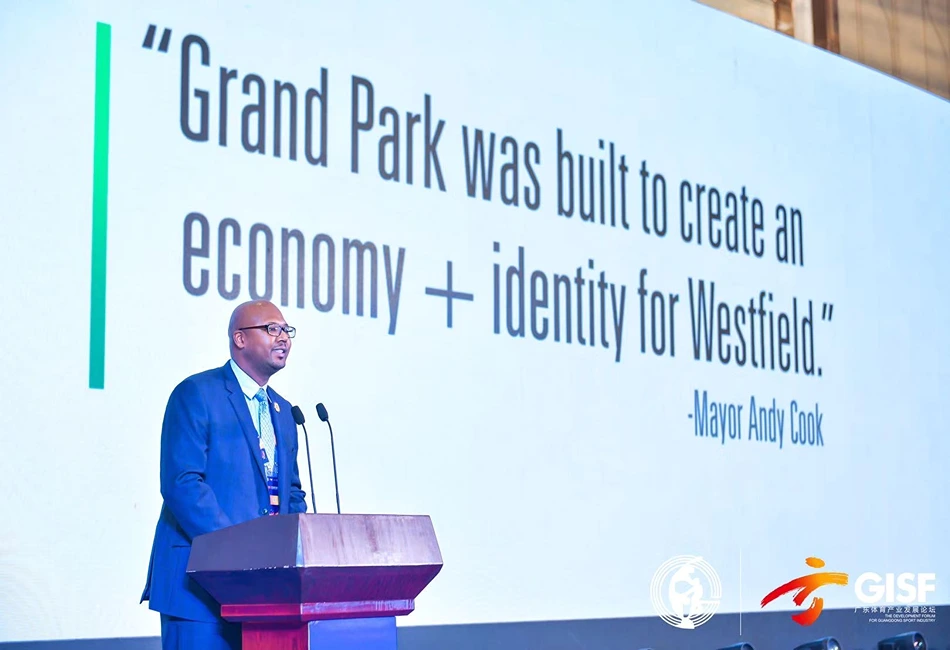With world-class facilities like Arrowhead Stadium, Kansas City prepares to welcome soccer fans for the biggest sporting event on the planet
By Billy Stampfl
Kansas City has been named a host city for the FIFA World Cup in 2026, joining a select group of 16 cities across the United States, Mexico and Canada and setting the stage for an international appraisement of Arrowhead Stadium, one of the Midwest’s premier athletic facilities.
Stay Ahead in Sports Planning—Subscribe Today! and Read More Sports Info for FREE
Held every four years, the World Cup is the most prestigious and widely viewed single sporting event in the world. In 2018, a combined 3.6 billion viewers tuned in to watch the tournament, and an estimated 6.8 million tourists visited the host cities. The 2026 edition will feature a record 80 matches and will be the first World Cup hosted by three countries, as well as the first to include 48 participating nations. According to studies, host cities can anticipate up to $620 million in incremental economic activity as a result of World Cup matches.
Much has been written about the significance of FIFA’s deciding to bring its most famous soccer tourney to Missouri—and the preceding paragraph outlines the World Cup’s social and economic impacts—but Mayor Quinton Lucas summarized the gravity of this decision best: “Kansas City is the soccer capital of America. I can’t wait to welcome the world to Kansas City.”
The 2026 World Cup matches in Kansas City will be held at Arrowhead Stadium, located at the Truman Sports Complex in Jackson County, Missouri. Home to the back-to-back Super Bowl champion Kansas City Chiefs, GEHA Field at Arrowhead Stadium is renowned for its electrifying atmosphere and holds the distinction of being the loudest stadium in the world. The venue has recently showcased its capacity to host major events by staging five of the last six AFC Championship games. Arrowhead also hosted a recent Sporting KC vs. Inter Miami soccer match featuring the legendary Lionel Messi that drew a massive crowd of more than 72,000, the fourth largest stand-alone crowd in MLS history.
Adjacent to Kauffman Stadium, home of Major League Baseball’s Kansas City Royals, Arrowhead boasts a seating capacity of 76,416. This makes it the 25th-largest stadium in the United States and the fourth-largest NFL stadium, as well as the largest sports facility by capacity in the state of Missouri. A $425 million renovation completed in 2010 modernized the stadium, ensuring it meets the highest standards for international events.
Kansas City is slated to host six matches at Arrowhead during the World Cup, including four group-stage fixtures and two knockout games. Organizers expect approximately 650,000 visitors to descend upon the region during the tournament, providing a substantial boost to the economy and an unprecedented opportunity for global exposure.
Level Up Your Event Planning Skills—Subscribe Now and Download the SPG Magazine for Expert Tips and News
The successful bid was the result of a collaborative effort led by many stakeholders. Co-chaired by Kansas City Chiefs Chairman and CEO Clark Hunt and Sporting Kansas City principal owner Cliff Illig, the bid was supported by an executive committee comprising sports executives, government officials, and civic representatives from across the region. This bi-state coalition delivered a strategic vision for securing the largest event in Kansas City’s history, involving key stakeholders such as proposed training sites, base camps, hotel partners, and Fan Fest locations.
Why Kansas City? The historic city is proudly known as the Heart of America, and it is the nation’s most centrally located major metropolitan area. With 55 million people within a day’s drive and both coasts accessible within a three-hour flight, the city offers unparalleled accessibility. Enhancing this advantage is the new $1.5 billion state-of-the-art single terminal at Kansas City International Airport.
Beyond the matches themselves, Kansas City is preparing to offer visitors a rich cultural experience. Known for its vibrant arts scene, world-famous barbecue, and jazz heritage, the city is planning Fan Fest locations where people can gather to celebrate, watch matches on big screens and enjoy live music and local cuisine.
And while Kansas City will take center stage, it is important to note that the impact of the World Cup extends beyond the host cities. FIFA has named St. Louis, another Missouri marvel, as part of a group of cities that could host team base camps for the tournament. Although the city that calls itself the “Gateway to the West” will not hold official World Cup matches, Saint Louis University could serve as a “home away from home” training camp site, with the Magnolia Hotel St. Louis as the paired accommodation. This arrangement allows teams the opportunity to establish a consistent base of operations throughout the tournament, offering a stable training environment that complements the dynamic atmosphere of the host cities.
The “home and home” setup in St. Louis provides an excellent opportunity for a famed city to engage with the global soccer community. Teams can acclimate in a supportive environment, and local fans have the chance to be part of the World Cup excitement. St. Louis, with its rich soccer history and passionate fan base, is poised to contribute meaningfully to the success of the tournament.
As anticipation builds for the FIFA World Cup, Kansas City stands ready to welcome the world. With its state-of-the-art facilities, strategic location, and a community united by a love for soccer, the city is set to shine on the global stage. The event promises not only thrilling matches but also lasting economic and cultural benefits for the region. Whether you’re a die-hard soccer fan or a traveler eager to explore the Heart of America, Kansas City will be the place to be come 2026.
Join the Community of Sports Planners! Get Your Free Subscription and Download the Sports Planning Guide Magazine for FREE







